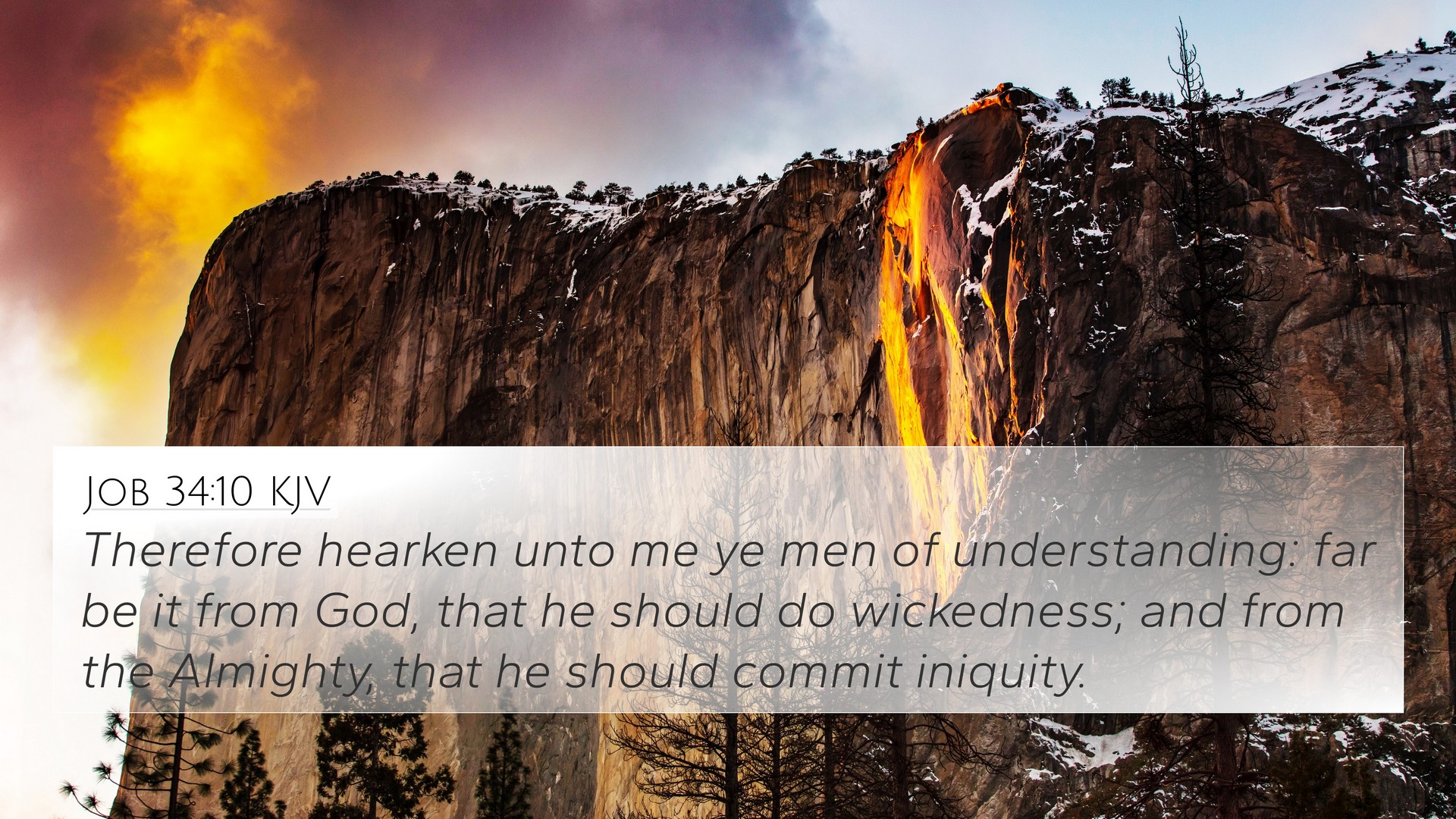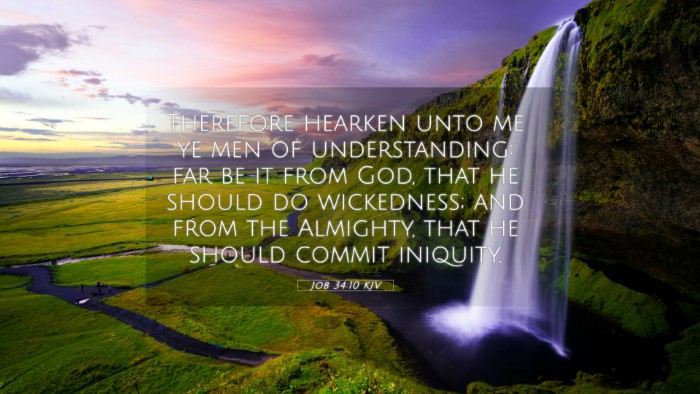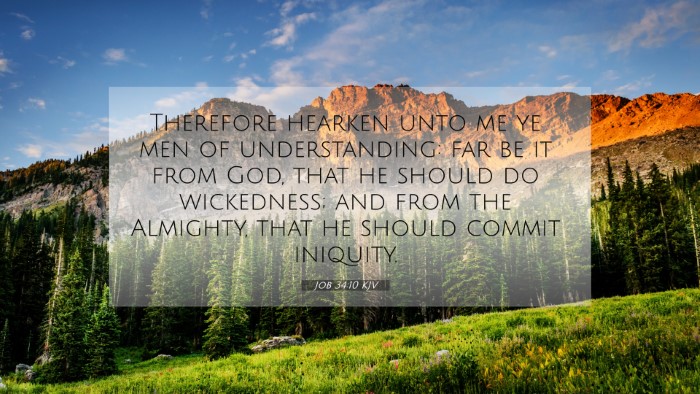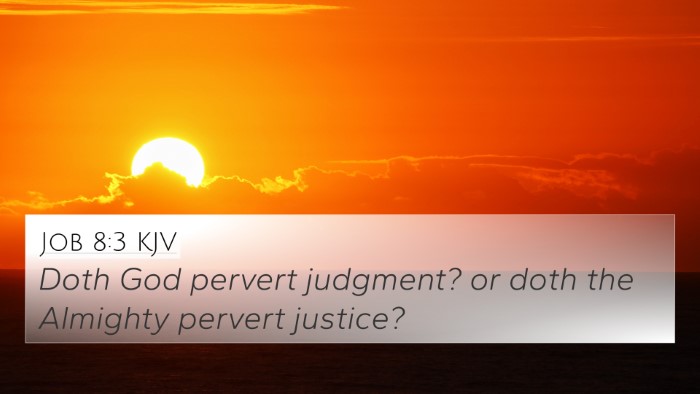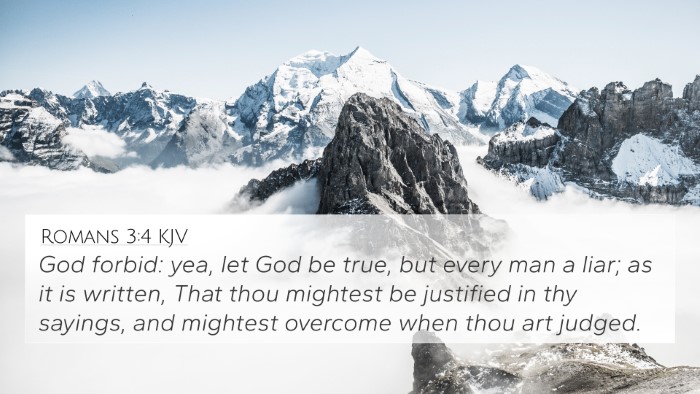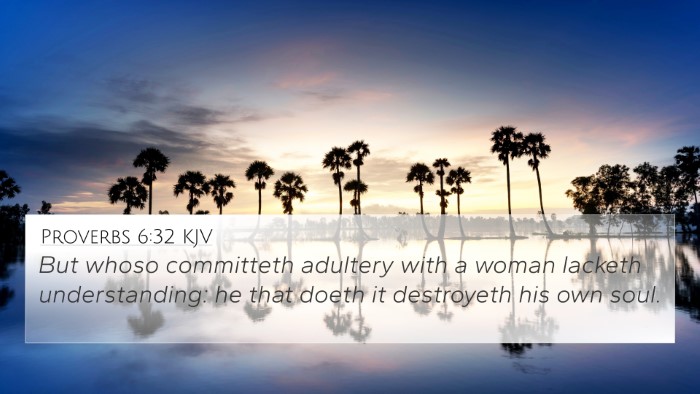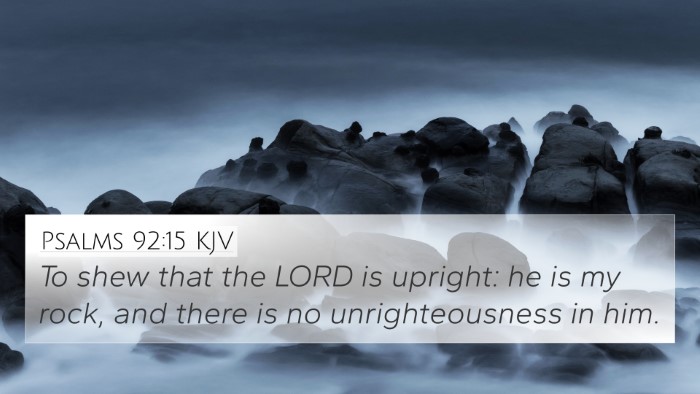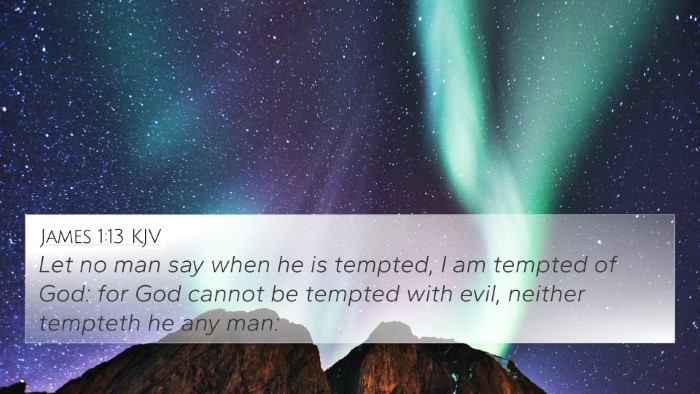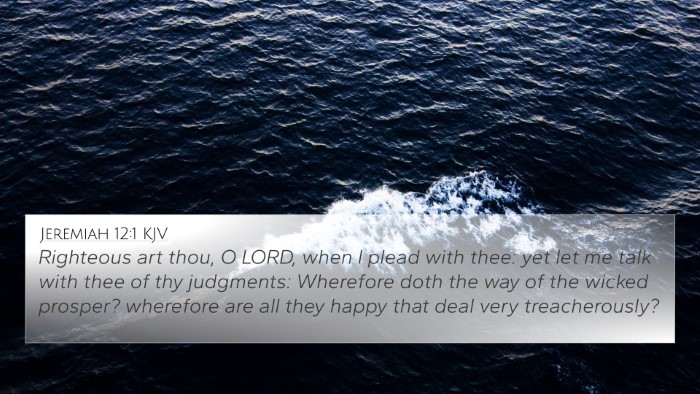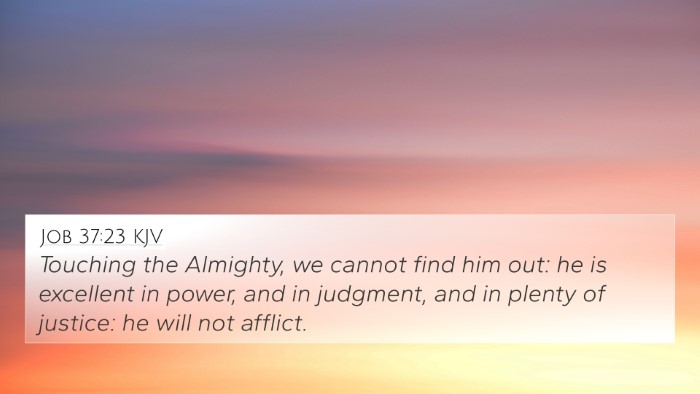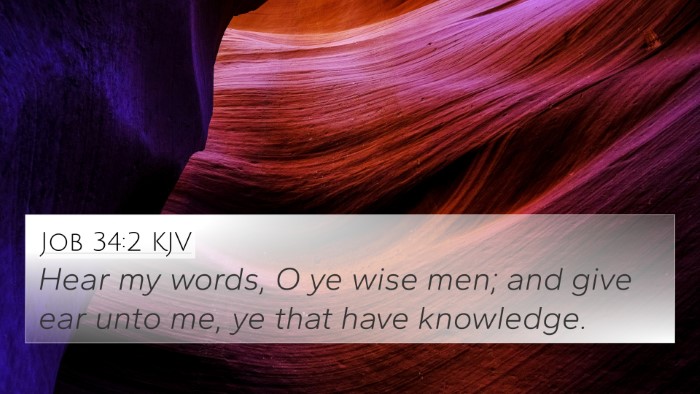Understanding Job 34:10
Job 34:10 states, "Therefore hear me, you men of understanding: Far be it from God that he should do wickedness, and from the Almighty that he should commit iniquity." This verse serves as a profound declaration of God's intrinsic righteousness and moral purity, affirming that wickedness cannot emanate from God.
Summarized Insights from Commentaries
- Matthew Henry:
Matthew Henry emphasizes the need for humans to acknowledge God's nature as inherently good. He asserts that it is blasphemous to think of God as capable of evil, reinforcing the notion that all of God's actions are righteous and just. This calls people to trust in God's character, especially during trials.
- Albert Barnes:
Albert Barnes illustrates the gravity of the accusation against God, noting that if God were to commit wickedness, it would undermine the very foundation of divine justice. He elaborates on the idea that God's governance is founded on righteousness, and any deviation would be impossible, reaffirming the integrity of God's actions.
- Adam Clarke:
Adam Clarke's commentary places emphasis on the relationship between God's nature and human understanding. He points out that humans, shaped by their own moral failures, may misinterpret God's actions. Clarke highlights that true understanding comes from recognizing and accepting God's perfect justice and purity.
Biblical Context
This verse appears in the discourse of Elihu, a young man in the Book of Job who speaks out against Job’s grievances towards God. Elihu is advocating the righteousness of God in contrast to human sinfulness, asserting that God’s moral rectitude is non-negotiable.
Cross-References to Job 34:10
When exploring Job 34:10, it's valuable to consider cross-referenced verses that elaborate on the nature of God and His relationship with wickedness:
- Psalm 92:15: "To declare that the Lord is upright; He is my rock, and there is no unrighteousness in Him."
- Isaiah 45:21: "Declare and present your case; let them take counsel together! Who told this long ago? Who declared it of old? Was it not I, the Lord? And there is no other God besides me, a righteous God and a Savior; there is none besides me."
- James 1:13: "Let no one say when he is tempted, 'I am being tempted by God,' for God cannot be tempted with evil, and he himself tempts no one."
- Habakkuk 1:13: "You who are of purer eyes than to see evil and cannot look at wrong, why do you idly look at traitors and remain silent when the wicked swallows up the man more righteous than he?"
- 1 John 1:5: "This is the message we have heard from him and proclaim to you, that God is light, and in him is no darkness at all."
- Romans 3:5-6: "But if our unrighteousness serves to show the righteousness of God, what shall we say? That God is unrighteous to inflict wrath on us? (I speak in a human way.) By no means! For then how could God judge the world?"
- Deuteronomy 32:4: "The Rock, his work is perfect, for all his ways are justice. A God of faithfulness and without iniquity, just and upright is he."
- Psalm 145:17: "The Lord is righteous in all his ways and kind in all his works."
- Titus 1:2: "In hope of eternal life, which God, who never lies, promised before the ages began."
- Matthew 5:48: "You therefore must be perfect, as your heavenly Father is perfect."
Connecting Themes and Lessons
Job 34:10 teaches us about the thematic connections throughout the Bible concerning God’s nature and human understanding. It invites believers to engage in a comparative Bible verse analysis by not only reflecting on God's righteousness but also by observing how these characteristics were revealed throughout both the Old and New Testaments.
Why Cross-Referencing is Important
Utilizing cross-referencing Bible study methods can deepen understanding of scripture. By identifying connections, believers can derive richer insights and applications for faith and practice. Tools for Bible cross-referencing, like concordances and other Bible reference resources, serve to enhance the study of scripture, facilitating the discovery of Bible verses that relate to each other.
Practical Applications
- Engage with the character of God through personal study by exploring His nature as untainted by wickedness.
- Utilize a Bible cross-reference guide to explore additional scriptures that affirm the nature of God.
- Incorporate the insights from Job 34:10 in personal reflection or sermon preparation, focusing on God's justice amidst human suffering.
- Encourage others to explore the interconnectedness of scripture, recognizing how one verse can illuminate another.
- Use the verse to initiate discussions about God's nature in community groups or Bible studies.
Conclusion
Job 34:10 provides a powerful reminder of God's immutable righteousness. By exploring cross-references and engaging with various commentaries, believers can cultivate a more nuanced understanding of the scriptures. This deepens faith, inspires trust, and highlights God's presence in the midst of life's challenges. As you study, consider how these Bible verse parallels not only relate to Job's situation but also to the broader narrative of God's revelation throughout the Bible.
